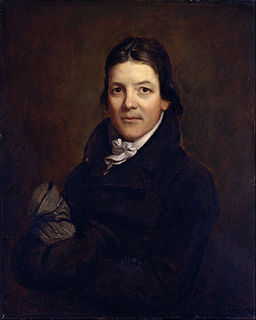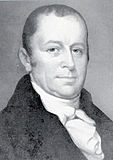
The 1952 United States presidential election was the 42nd quadrennial presidential election. It was held on Tuesday, November 4, 1952. Republican Dwight D. Eisenhower won a landslide victory over Democrat Adlai Stevenson, ending a string of Democratic Party wins that stretched back to 1932.
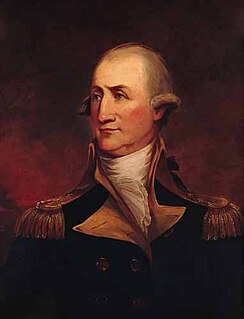
John Peter Gabriel Muhlenberg was an American clergyman, Continental Army soldier during the American Revolutionary War, and political figure in the newly independent United States. A Lutheran minister, he served in the United States House of Representatives and United States Senate from Pennsylvania.
The Radical Republicans were a faction of American politicians within the Republican Party of the United States from around 1854 until the end of Reconstruction in 1877. They called themselves "Radicals" with a sense of a complete permanent eradication of slavery and secessionism, without compromise. They were opposed during the War by the moderate Republicans, by the conservative Republicans, and by the pro-slavery and anti-Reconstruction Democratic Party as well as by conservatives in the South and liberals in the North during Reconstruction. Radicals led efforts after the war to establish civil rights for former slaves and fully implement emancipation. After weaker measures in 1866 resulted in violence against former slaves in the rebel states, Radicals pushed the Fourteenth Amendment and statutory protections through Congress. They disfavored allowing ex-Confederates officers to retake political power in the South, and emphasized equality, civil rights and voting rights for the "freedpeople", i.e. people who had been enslaved by state slavery laws within the United States.
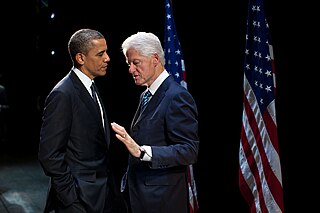
New Democrats, also called centrist Democrats, Clinton Democrats or moderate Democrats, are a centrist ideological faction within the Democratic Party. As the "Third Way" faction of the party, in addition to being socially moderate to liberal on social issues, they support free market-based economic policies, such as free trade, deregulation, privatization and austerity. New Democrats dominated the party from the late-1980s through the mid-2010s.
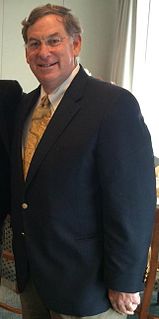
Sam Katz is an American politician from Philadelphia, Pennsylvania. He was the Republican nominee for Mayor of Philadelphia in 1999 and 2003, nearly winning the election in the overwhelmingly Democratic city. His loss to the controversial John F. Street was covered in the documentary The Shame of a City.
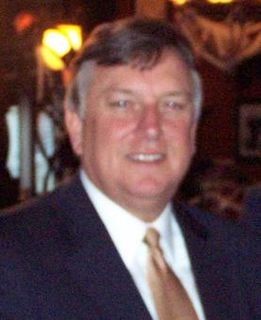
Mark Stephen Singel is an American politician who served as the 27th lieutenant governor of Pennsylvania from 1987 to 1995, alongside Governor Bob Casey. Singel served as the state's acting governor from June 14, 1993 to December 13, 1993, during Casey's lengthy battle with amyloidosis and subsequent multiple organ transplant.
The Democratic Party of the United States is composed of various factions with some overlap and enough agreement between them to coexist in one party.

Pennsylvania, like neighboring New Jersey, has swung from being a Republican-leaning state during much of the 20th century to a more competitive state in national presidential elections. Pennsylvania has backed the Democratic presidential candidate in every election since 1992 up until 2016, when it was won by Republican candidate Donald Trump. In 2008, Barack Obama won almost all of the Philadelphia suburbs. Statewide, John McCain won almost three times as many counties (48) as Obama (19), but Obama won the most populous counties and therefore won the popular vote for the state, carrying its 21 electoral votes.

The Pennsylvania gubernatorial election of 1799 was between two candidates. Incumbent governor Thomas Mifflin was not running. The race was between Federalist U.S. Senator James Ross and Democratic-Republican Thomas McKean. The retired Chief Justice of the Pennsylvania Supreme Court, McKean was a Federalist and a Mifflin ally, as both supported strong state executive power but rejected the domestic policies of the national government.

The 1964 United States presidential election in Pennsylvania took place on November 3, 1964, and was part of the 1964 United States presidential election. Voters chose 29 representatives, or electors to the Electoral College, who voted for president and vice president.

The Pennsylvania gubernatorial election of 1820 occurred on November 7, 1820. Incumbent Democratic-Republican governor William Findlay sought re-election but was defeated U.S. Representative Joseph Hiester. Findlay entered the race with significantly reduced popularity. He had been renounced in the press as an opponent of democracy due to his nomination during the 1817 campaign by a group of party insiders. He additionally faced allegations of corruption over the misappropriation of funds during his tenure as State Treasurer, although all charges were dismissed during impeachment proceedings before the State Legislature. For this campaign, Findlay was chosen for a slot on the ballot at a popular convention of Democratic Republicans; Hesiter was selected at a separate convention of Federalists and "Old School Democrats". The sour state of the economy was a key factor in the defeat of the incumbent, as Pennsylvania was reeling from the effects of the Panic of 1819.
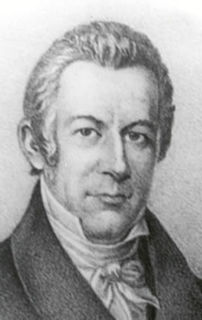
The Pennsylvania gubernatorial election of 1817 occurred on November 4, 1817. Incumbent Democratic-Republican governor Simon Snyder was not a candidate for re-election. Simon's preferred successor, State Treasurer William Findlay, was nominated as the Democratic Republican by a caucus of legislative leaders. Conversely, U.S. Representative Joseph Hiester was chosen as a candidate by the Democratic Republican's first popular nominating convention; he additionally gained the endorsement of the declining Federalists.
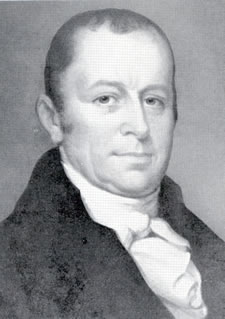
The Pennsylvania gubernatorial election of 1808 occurred on November 8, 1808. Incumbent governor Thomas McKean, a former Democratic Republican who had faced impeachment by members of his own party during the prior term, was not a candidate. Democratic-Republican candidate Simon Snyder, former Speaker of the Pennsylvania House of Representatives defeated Federalist candidate and former U.S. Senator James Ross to become Governor of Pennsylvania. Snyder, with the aid of a supportive press, campaigned as a "New School Democrat" and attempted to ally himself with James Madison. He painted the former McKean administration as elitist and advocated for popular democracy, governmental intervention in the economy, and infrastructural support for Western Pennsylvania counties.
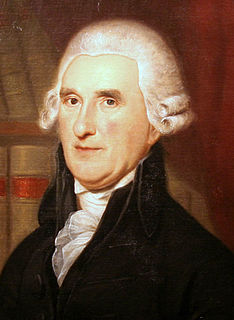
The Pennsylvania gubernatorial election of 1802 occurred on November 2, 1802. Incumbent Democratic-Republican governor Thomas McKean successfully sought re-election to another term. As occurred in his prior campaign, he defeated U.S. Senator James Ross, a Federalist.

The Michigan gubernatorial election of 2014 took place on November 4, 2014, to elect the Governor of Michigan, concurrently with the election of Michigan's Class II U.S. Senate seat, as well as other elections to the United States Senate in other states and elections to the United States House of Representatives and various state and local elections.
The Commonwealth was a weekly newspaper published in Pittsburgh, Pennsylvania from 1805 to 1818, before continuing as The Statesman until 1836. It was the city's third newspaper, and one of several in the ancestral lineage of the Pittsburgh Post-Gazette.

The Tree of Liberty, published weekly from 1800 to about 1810, was the second newspaper in Pittsburgh, Pennsylvania, United States. John D. Israel established the paper and issued it from a building owned by Hugh Henry Brackenridge. Israel's columns promoted the Democratic-Republican politics of Thomas Jefferson while denouncing Federalists and their local organ, the Pittsburgh Gazette.


